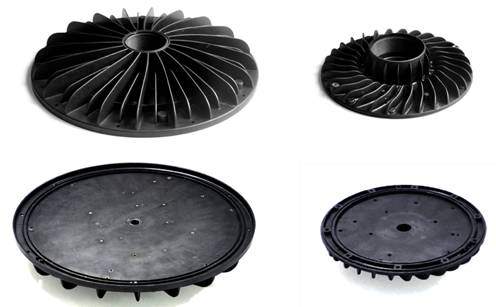


Ultra high thermal conductive plastics-Development background
Thermal conductive plastics
With the precondition of insulate, major conductive plastics conductivity is under 10W/MK, the heat conduction efficiency is far lower than that of aluminum or ceramic materials, the cooling effect is limited, therefore limited to small power lighting applications.
Aluminum
The cooling requirements are more strict of high wattage LED lamps and lanterns, so now commonly use aluminum extrusion, aluminum die-casting processing with active cooling technology such as fan, heat pipe cooling, spraying nano surface coating to improve the efficiency of heat radiation. Use a larger area of the aluminum shell, although can increase the radiating surface area, but also increase the weight and cost of the product. Moreover, the life of cooling fan is generally low, system complex and the reliability is poor. While the heat pipe cooling and the nano surface coating are all originated from military products, the cost is high and is not conducive to the mass market promotion.
Ultra high thermal conductive plastics –Test
Test Report
Continuously lit 1hr then test, total 5 test points
Initial measured DC POWER electrical parameters︰
3 inch︰ Driving power:13W
Voltage︰22V/DC Current:500mA
Environment temperature ︰40℃ (Under constant oven temperature)
LED︰3014
Substrate︰Al substrate
Heat conductive substrate︰Thermal paste
Test purpose︰Verify the temperature of key components when the whole lamp is lit.
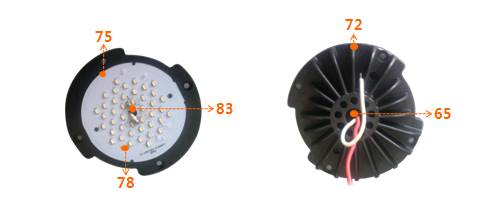
Ultra high thermal conductive plastics -Test
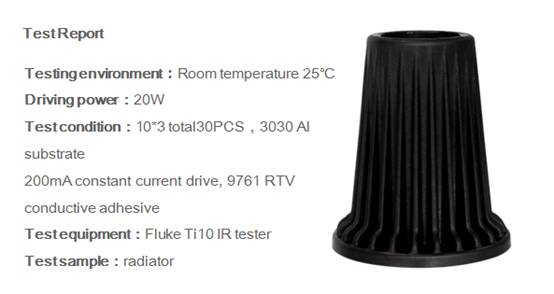
Ultra high thermal conductive plastics -Test
Test Report
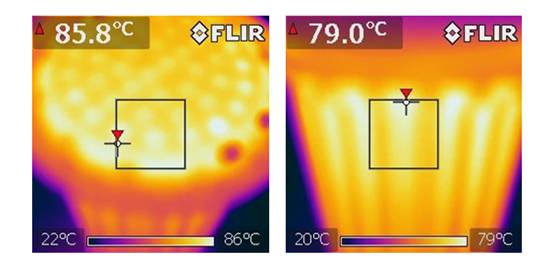
Typical technical parameters
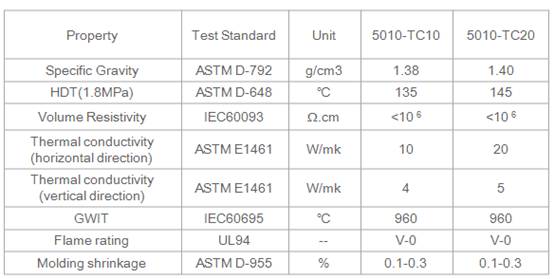
Advantage of using ultra high thermal conductivity plastics instead of metal materials:
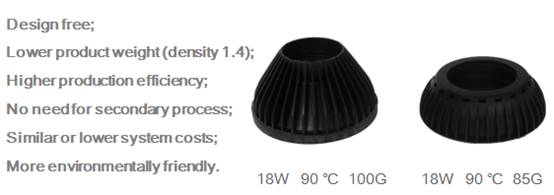
Ultra high thermal conductive plastics ---Application example
